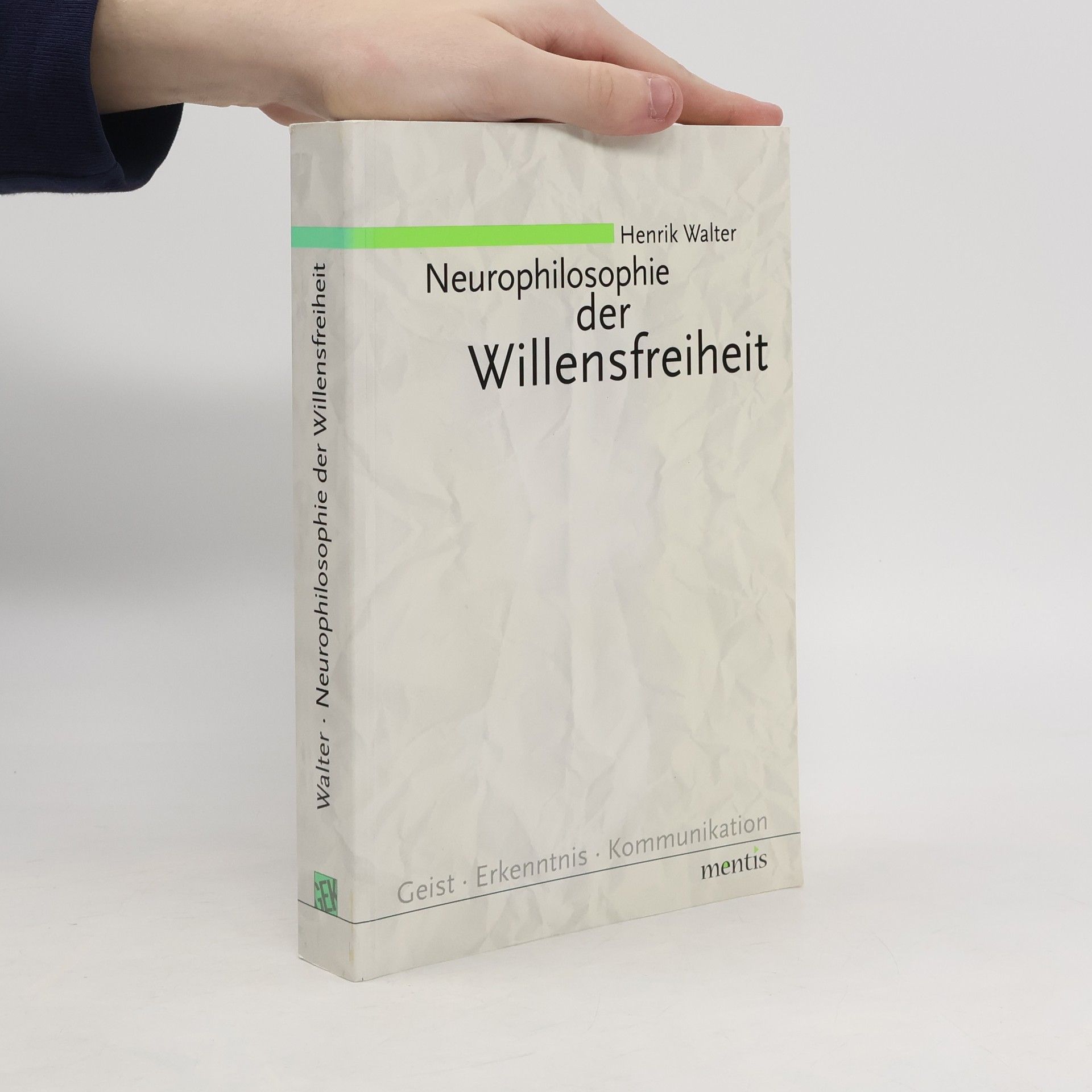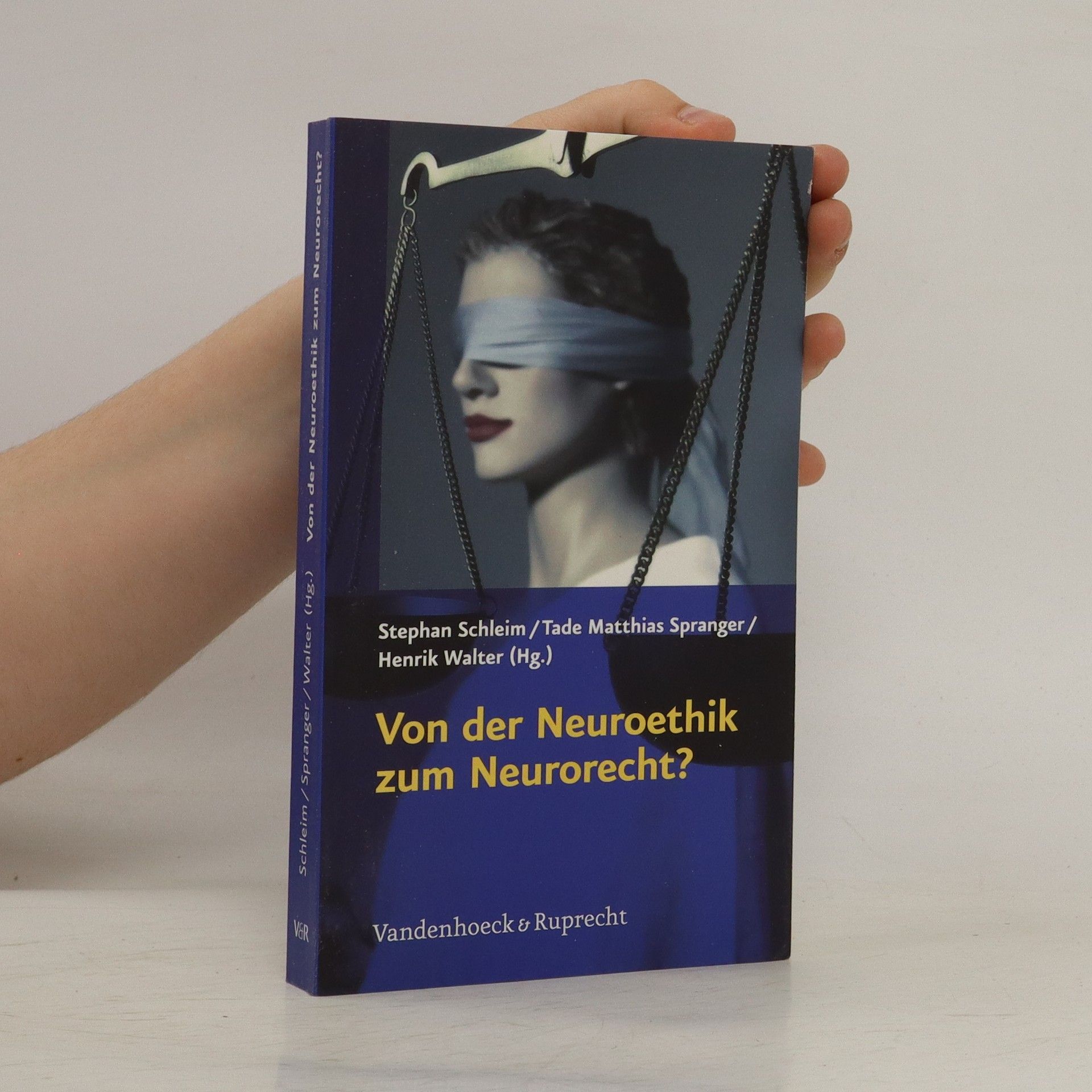In "Psychische Widerstandsfähigkeit ist machbar" erklärt Prof. Dr. Henrik Walter, wie man psychisch robust bleibt und warum viele Glücksratgeber oft zu viel versprechen. Mit 30 Jahren Erfahrung präsentiert er wissenschaftlich fundierte Ansätze zur Resilienz und beleuchtet überraschende Erkenntnisse über Stress und unsere Psyche.
Henrik Walter Livres




Psychoneurowissenschaften
- 415pages
- 15 heures de lecture
Das Lehrbuch verbindet die Neurowissenschaften mit den Psychowissenschaften und bietet beiden Disziplinen verständliche, wissenschaftlich fundierte Kenntnisse. Lange galt das Verhältnis zwischen psychischem Erleben und Gehirnvorgängen als rätselhaft. Neueste Erkenntnisse zeigen, dass beide Bereiche eine unauflösliche Einheit bilden, auch wenn sie unterschiedlich erfahren und untersucht werden. Diese Einheit wird in der psychologisch-neurobiologischen Theorie sowie in der psychiatrisch-psychotherapeutischen Praxis konkretisiert. Es werden die Prinzipien der neurobiologischen Erregungs- und Informationsverarbeitung, der Aufbau und die Funktion des limbischen Systems sowie die Entwicklung der Persönlichkeit behandelt. Dabei werden die Wechselwirkungen genetisch-epigenetischer Faktoren und Umwelteinflüsse berücksichtigt. Auf dieser Grundlage werden wichtige psychische Störungen wie Suchterkrankungen, schizophrene Störungen, affektive Störungen und Angststörungen beispielhaft dargestellt. In Anlehnung an den Psychotherapeuten Klaus Grawe wird das Konzept der „Neuropsychotherapie“ eingeführt, das die Verbindung zwischen Psychotherapie und Neurobiologie beleuchtet. Unser psychoneurowissenschaftlicher Ansatz fördert ein Menschenbild, das auf der Integration von Psyche, Gehirn, Verhalten und Erleben basiert, anstatt auf Gegensätzen.
Von der Neuroethik zum Neurorecht?
- 265pages
- 10 heures de lecture
Können Wahrheit und Lüge im Gehirn erkannt werden? Dürfen neue Verfahren der Hirnforschung zum Erkennen von Gedanken benutzt werden? Entsteht ein neues Menschenbild? Müssen Recht und Moral auf die neuen Forschungsergebnisse reagieren? Der Fortschritt der modernen Neurowissenschaften wirft heikle Fragen auf. Aus philosophischer, psychologischer und rechtswissenschaftlicher Perspektive wird in diesem Band diskutiert, wie die Erkenntnisse der Hirnforschung verstanden und in der Gesellschaft aufgenommen werden. Die Beiträge befassen sich mit der Stabilität unseres Menschenbilds, der Begutachtung von Zeugenaussagen vor Gericht, mit Willensfreiheit und Schuldfähigkeit, der Aussagekraft bildgebender Verfahren, der Rolle der Psychologie bei rechtspolitischen Entscheidungen und den weitreichenden rechtlichen Implikationen der Neurowissenschaft. Für diesen Sammelband wurden nicht nur die Beiträge ausgewiesener Experten ausgewählt. Zusätzlich sind viele der Autoren in mehreren Disziplinen beheimatet. Interdisziplinarität ist daher für sie kein Fremdwort und mit Blick auf die gesellschaftliche Relevanz stellen sie die Probleme des »Neurorechts« in allgemeinverständlicher Weise dar.
Neurophilosophie der Willensfreiheit
Von libertarischen Illusionen zum Konzept natürlicher Autonomie. 2. Auflage